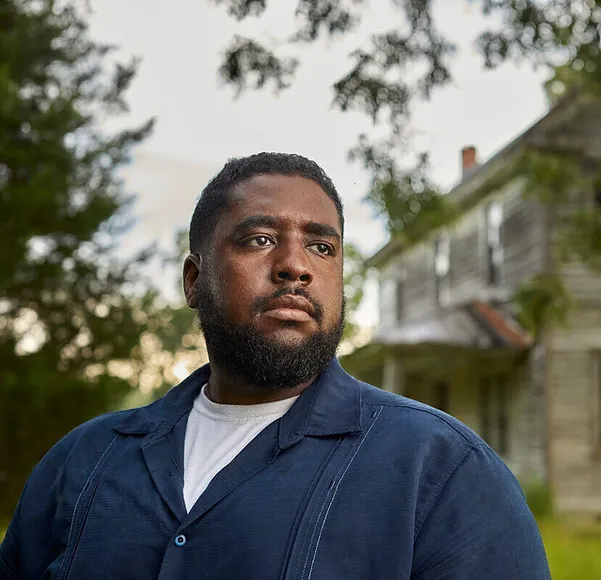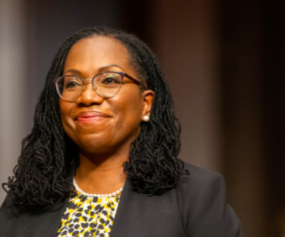Piney Woods is a quiet town in North Carolina known for its legacy as a financially independent community founded by freed Black Americans and Indigenous groups such as Croatan and Tuscarora. Once known as Free Union, Piney Woods is one of the exemplars of Black-American land ownership in the South. And one of its residents — a descendant of the original founders — is looking to protect the land from land development.

William J. Barber III, whose family owns land in Piney Woods, established the Rural Beacon Initiative. The initiative supports the development of regenerative agriculture and renewable energy development in communities throughout the South. Its mission: To protect Piney Woods and Black communities like it from land loss — either through industry encroachment or the impact of climate change. Through the Rural Beacon Initiative, Barber is rolling out a multi-tier project to preserve Piney Woods as a historic site while also working to preserve Black family land loss.
Barber’s multi-year sustainability project comes at a crucial time in Piney Woods history. Some landowners sell their land to farm industry developers for less than its value. In addition, for young adults, there are not enough long-term economic opportunities available –despite the growing presence of industrial plants in the area.
While selling and leaving Piney Woods for greener pastures might seem immediately lucrative, selling Black-owned farmland is also halting the chances at generational wealth.
Where Free People of Color Lived
“Free Union Piney Woods is a place where you had free people of color, never enslaved, never sharecropping. They showcased the prosperity and the resilience that could be built even without the level of financial investment other areas have seen,” Barber told The Nation. “The fact that Piney Woods has been so resilient without those investments both challenges the notion of what is not possible in rural communities of color but also expands the imagination of what is possible if we have a movement to address systems of Black land loss.”
Yet property owners in Piney Woods are beginning to feel the same sting as other Black communities. Specific segments within the farming industry are looking to expand their business and are presenting property owners with purchase offers that will provide them with a quick financial return.
In particular, older owners of multigenerational properties without heirs are being targeted.
“This story needs to be told so people cannot say that these types of communities did not exist; so that people cannot say that there were never unadulterated Black homesteaders, landowners, and farmers who were not simply sharecroppers or not simply oppressed by the land. There were African American communities, multiracial communities that owned land outright,” Barber III told The Nation. “We have to move as quickly as possible and as urgently as possible to resist this encroachment, to preserve this community of Free Union, and to tell this story of a lost history: a history of Black, Indigenous, and white fusion existence, of deep commitment to stewardship and one another, and of self-determination south of the Mason Dixon Line.”
Losing Land
It’s not uncommon to hear of Black Americans having their land stolen or being forced to relinquish claim to their property. The latter is what farmer April Jones said happened to her family’s land.
“My great-grandfather had land that was quite valuable; it was very fertile, very lush, very giving land,” Jones told The Nation. “And the [white] people in his community wanted his land. They said, ‘You’re going to give us your land, or we’re going to take your life.’ And so, he packed up his family in the middle of the night and left his land to go up North and struggle and start over. It was devastating for him.”
Blacks have been losing land for generations. White farmers and landowners formulated tax and property law schemes that allowed them to take land away from African-Americans. One study found that Black farmers in the U.S. lost an estimated $326 billion worth of acreage during the 20th century. The study, “Black Land Loss: 1920−1997,” is the first study to quantify the present-day value of that loss. It was published in the American Economic Association’s Papers and Proceedings journal.
Black American property owners have also lost land due to eminent domain and industry land purchases that led to deed confusion and other conflicts within communities.
Yet Barber and others such as Jones are committed to preserving Black intergenerational land.
“We’ve had millions, literally millions of acres of land lost [or stolen] from our Black community.… We are in urgent and desperate need of solutions of scale and historically communities like Free Union have been some of the greatest and most effective stewards of the land,” Barber told The Nation. “We must have models like this that have the people connected to these communities in the decision-making seats. It’s about self-determination.”




